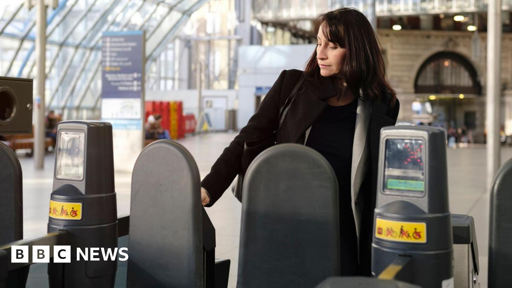Three rail operators will be renationalised by Labour next year, but the move is not expected to bring down fares for passengers travelling on these lines.
Transport Secretary Heidi Alexander said she recognised that “affordability is really important to people” but that people were “willing to pay for a good service”.
It comes as the government confirmed South Western Railway will be renationalised in May 2025, C2C in July 2025, and Greater Anglia in autumn 2025, after Labour passed a law allowing it to do so.
But some have criticised the plans, arguing that public ownership will not make much difference unless it is paired with fresh investment in the railways.
[…]
Rail fares are due to rise by 4.6% from March as set out in the recent Budget, a figure that the transport secretary repeated when asked if tickets will get cheaper with public ownership.She described this as “the lowest absolute increase for the last three years”.
Ms Alexander added that it while people may be willing to pay more for a “really good” service, including at evenings and weekends, performance had to improve.
The transport department said that renationalisation would improve reliability, boost economic growth, and save £150m per year in fees.
“We need to bring these train companies into public ownership, and so we want to turn the page on 30 years of failure,” Ms Alexander told BBC Breakfast.
“The primary aim of this is to improve reliability and clamp down on the delays, the cancellation, the waste and the inefficiency that we’ve seen,” she said.
Giving the example of LNER, she said that the department has “reduced the number of trains that are cancelled due to staff shortages to basically zero”.



Yea if state companies act like private ones then what’s the point? The point of nationalizing rail is to allow it to run “losses” (economic stimulus for the people)
the ticket price can be set to zero if the Government desires, obviously this may result in high demand and tickets selling out quick so a non-zero but low price would be better. the ticket pricing should instead be seen as a way to reduce excess demand deter people from taking unnecessary train rides, not to generate revenues.
This doesn’t have to be done through pricing. Distance/stop/trip quotas (a form of rationing) also works in some cases.
unfortunately, the Government sees ticket revenue as a way to get a surplus on the income statement.
It has been looted, the taxpayers can have it back!